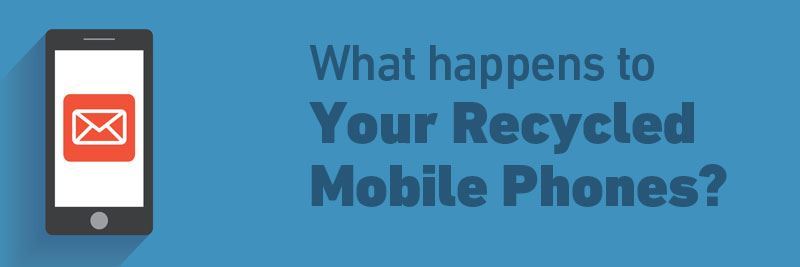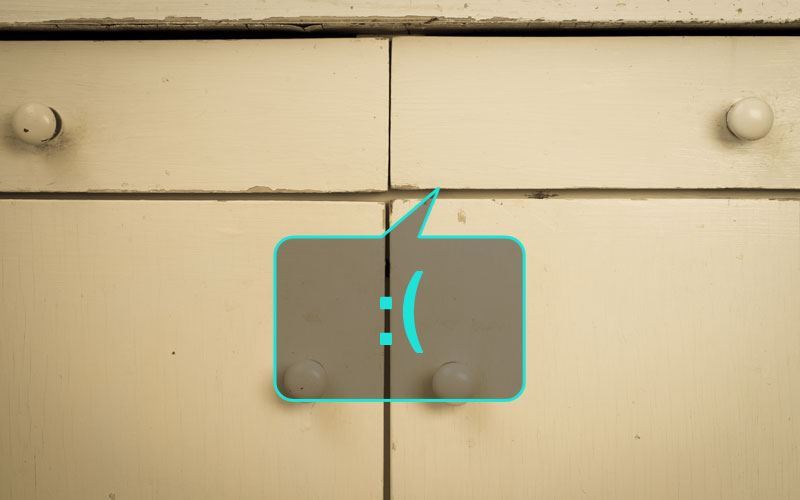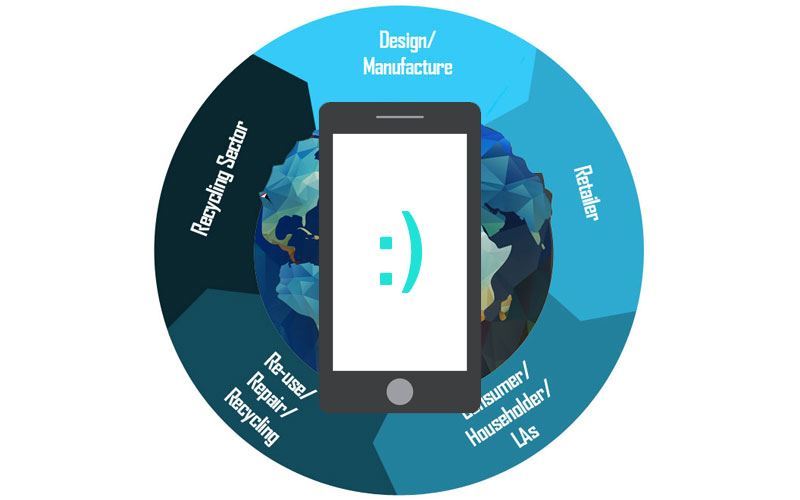Upgrading our mobile phones has become as arbitrary as filling up our cars with fuel when the annoying ding echoes around the cockpit.
They’re an integral part of our day to day lives, both in work and in our free time. So integral, in fact, that we often keep our old phones for a while as a “just in case” measure. The trouble with this is that 99% of the time, these old phones are merely collecting dust, when what they could be doing is contributing towards the circular economy.
Of course your phone isn’t waiting to be set free so it can become an upstanding citizen with strong recycling ethics. An old phone is worth a lot more in the hands of businesses following the Waste Electrical and Electronic Equipment Directive (WEEE) than it is living a lonely life in your junk drawer.
Let us demonstrate through the power of graphics:
The life of a phone in your Junk Drawer
The life of a phone in the hands of a WEEE Recycling Business
What is mobile phone recycling?
Can they be refurbished?
Before your phone gets torn apart and salvaged for parts, it is first decided whether your phone can be refurbished to it’s former glory or be sold on straight away as a working handset.
Security tests take place to ensure phones received are not lost or stolen – this is done by checking the IMEI number (the long code that you often have to mess about with when you’re changing you’re changing handsets). Certain components like the keypad, screen and microphones are tested to see if they are in full working order. If so, they can be sold on and used by someone else, all the while staying away from your dust collecting hideaways.
Many of the phones that we may consider to be worthless or behind the times can be exactly what another person may be looking for in a mobile – a simple, cheap, functional device for calling or texting.
If they can’t be refurbished…
The valuable items are extracted
Whilst many phones that get sent to be recycled are either beyond economic repair, or not worth their own weight (when used a phone), there is still a lot of value in the parts contained within a handset. Especially when in the hands of a company who knows what’s of value, and where it can be sold or recycled.
Small quantities of metals such as platinum, gold, silver and copper can all be used again in other items. Even the batteries which contain high amounts of nickel can be combined together to create stainless steel.
The plastics which make up the casing for many phones can be melted down into plastic sheets which can be reused for, well… anything that contains plastic. Your old phone casing may have be used to send you down a diversion on your way to work in the form of a traffic cone. small world.
Separating the dangerous materials
In every phone, there are small amounts of dangerous materials like mercury, lead or cadmium, that could lead to the contamination of soil or water if simply thrown straight on a landfill. Many WEEE recycling companies extract these materials and dispose of them in an environmentally friendly way.
Selling or recycling
Once all the small parts of your phone have been extracted and split up by material type, they can be grouped together and either recycled or sold on. Certain metals like copper can be sold for a lot, whilst with others it makes sense to melt them down in order to create something new from them. Whilst the amount of gold in a phone may be only a small amount, and certainly not enough for you to create a DIY engagement ring – in large amounts, over a lot of handsets, the small amounts of gold add up and can all be melted down to make certain items, like the jewelry you’re wearing in your ears or around your finger.
One man’s junk
One man’s junk is another man’s treasure, so before you decide to throw your next mobile phone straight in the bin, or leave it lying around in your drawer collecting dust, consider submitting it to a company who knows how to get the best out of it! Mobile phone recycling is an important part of WEEE recycling. Find out about our service here.
Related content
- Nationwide Hazardous Waste Disposal
- Hazardous Waste Recycling & Collection Services
- Commercial Waste Collections & Waste Disposal
- Mobile Phones are a Growing Waste Problem



